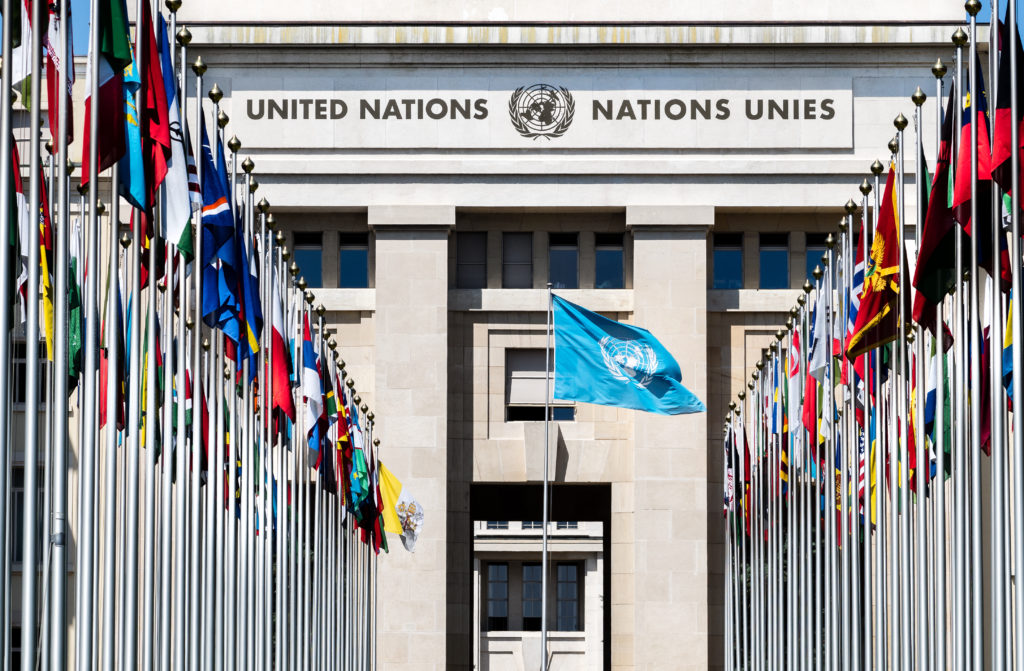Torture high on UN Human Rights Council’s agenda / HRC46
Incidents and risks of torture and ill-treatment were high on the agenda of the latest UN Human Rights Council, which concluded on 24 March 2021. Deteriorating situations in a number of countries around the world, involving the excessive use of force by police, security and military actors, were highlighted. The Council’s deliberations reconfirmed the need for schemes such as the Convention against Torture Initiative (CTI), which works with all States – collaboratively and constructively – to address institutional structures, practices and cultures that incentivize torture and other egregious misconduct. The session was also dominated by the Covid-19 pandemic.

The 46th session of the Human Rights Council (HRC46) paid particular attention to the special role of police and law enforcement officials. This was encapsulated in the biennial thematic Resolution – led by Denmark – on torture and other cruel, inhuman or degrading treatment or punishment. The Resolution, adopted by consensus, was co-sponsored by more than 60 UN Member States, including the CTI Core States of Chile, Fiji and Morocco.
The Resolution recognises the vital role police and law enforcement play in serving their communities and that they are expected to treat all persons with respect for their human dignity and without discrimination. The Resolution highlights how separation and specialisation of roles and responsibilities of police and other law enforcement officials can lead to improved professionalism and efficiency, inviting States to consider designating specific officers for arrest, investigation and custody. The Resolution stresses the need for corroborating evidence, including by using modern technology and science, interviewing techniques that promote truth, and adequate selection, training, remuneration and equipment, to reduce risks of torture and ill-treatment.
This important and well formulated Resolution will valuably assist CTI’s ongoing work in advising police services around the world to be part of the solution to preventing torture and ill-treatment. It provides a useful framework against which police authorities can assess their alignment with best international practice.
Dr. Alice Edwards, Head of CTI Secretariat
The Resolution also acknowledges the efforts of CTI in facilitating exchanges, sharing good practices and advising police and law enforcement (see preambular para. 6).
Highlighting CTI’s commitment to State reforms and equipping and professionalising police and law enforcement with appropriate torture prevention strategies, CTI Core State Ambassador of Chile, H.E. Frank Tressler, delivered a statement on behalf of the six CTI States during the General Debate on Item 3. The short statement recognised the concrete connection between Covid-19 and the special role that police are playing in responding to the pandemic.
The enforcement of widespread lockdowns, quarantine measures and curfews has drawn attention to the benefits of community-oriented policing, based on positive relationships, empathy and understanding.
H.E. Frank Tressler, Ambassador of Chile
The Council programme also featured:
- The High Commissioner for Human Rights, H.E. Michelle Bachelet’s oral progress update on addressing racism and racial discrimination in policing, in which she called for a systemic response in addressing racism, including by looking at the factors reinforcing inequalities and which contribute to police violence. Her final report, to which CTI Secretariat has contributed, will be delivered at HRC47 in June, read more about our contribution.
- The Special Rapporteur on Torture’s latest thematic report, which evaluated State cooperation with the Special Rapporteur in their responses and follow-up to official communications and country visit requests. To improve States’ responses and cooperation, the report recommends the Office of the High Commissioner for Human Rights lead a multi-stakeholder process aiming to identify agreed generic standards for evaluating and improving the effectiveness of the interaction between States and Special Procedures.
- The UN Voluntary Fund for Victims of Torture’s report, which highlighted the disproportionate impact of Covid-19 on torture victims given their already fragile physical and mental health. The Fund reported granting 17 emergency funds benefiting over 3,600 beneficiaries affected by the pandemic, with 171 project grants overall for 2020, with a projection of 160+ grants in 2021.
- The report of the Special Fund established pursuant to the Optional Protocol to UNCAT (OPCAT) to finance educational activities following a visit, reported that projects in nine countries had benefited from grants in 2020, and that adjustments for Covid-19 had been made by moving trainings online.
The deliberations impacting on torture and the UN Convention against Torture at HRC46, which also covered specific country situations, added further bearing on the need for humane and proportionate national responses and mechanisms, for example, in managing the global pandemic, patrolling assemblies and protests, building peaceful communities which respect difference and diversity, and responding to other crises. All such action should be in full respect of the absolute prohibition against torture and ill-treatment.
For States interested in how CTI can support police and law enforcement training or reforms, please contact advicehub@cti2024.org, or find more information on the CTI Advice Hub or Resources for States.

